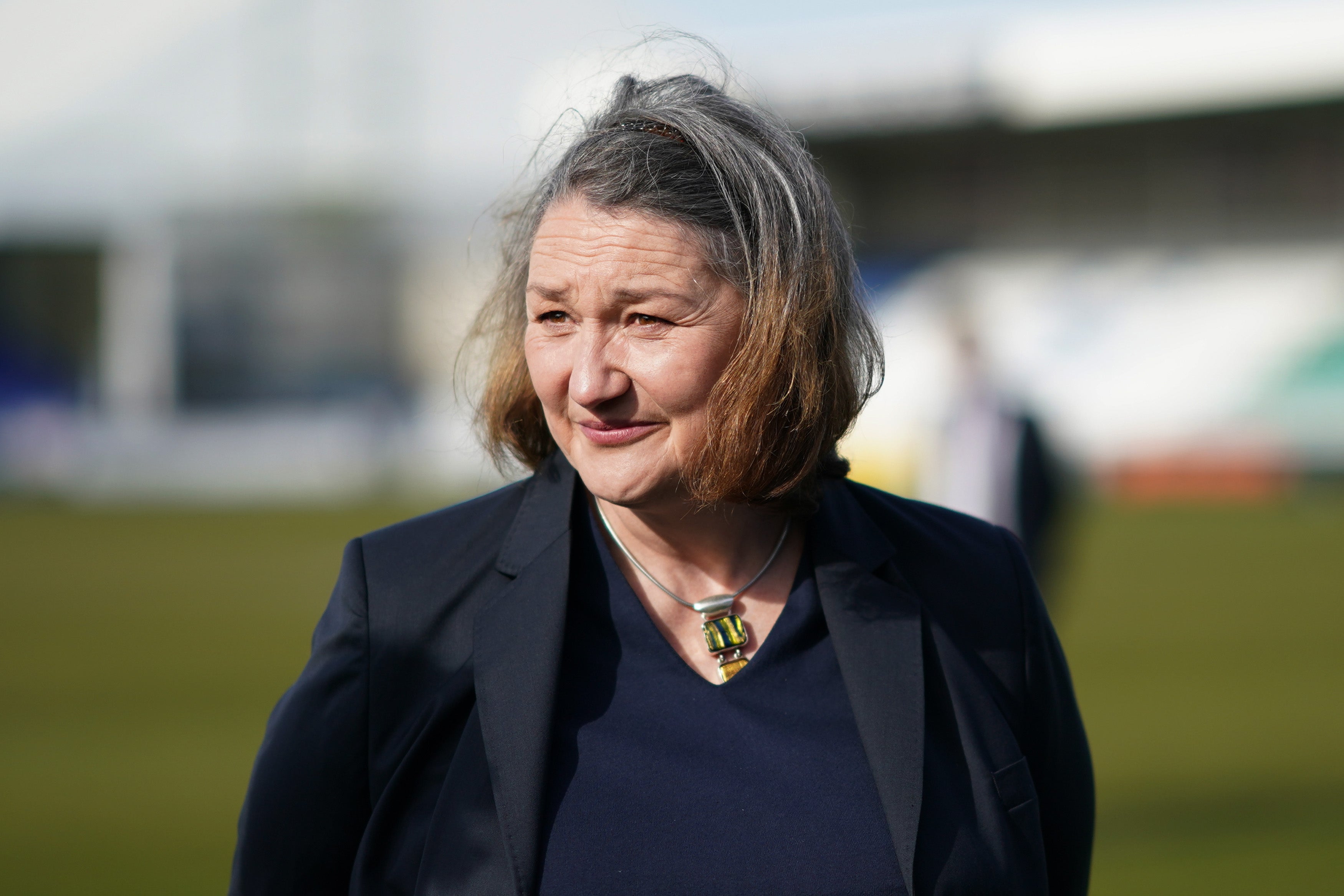Hartlepool by-election is major test of Keir Starmer’s strategy
North-east town hosting the first by-election of the 2019 parliament
Your support helps us to tell the story
From reproductive rights to climate change to Big Tech, The Independent is on the ground when the story is developing. Whether it's investigating the financials of Elon Musk's pro-Trump PAC or producing our latest documentary, 'The A Word', which shines a light on the American women fighting for reproductive rights, we know how important it is to parse out the facts from the messaging.
At such a critical moment in US history, we need reporters on the ground. Your donation allows us to keep sending journalists to speak to both sides of the story.
The Independent is trusted by Americans across the entire political spectrum. And unlike many other quality news outlets, we choose not to lock Americans out of our reporting and analysis with paywalls. We believe quality journalism should be available to everyone, paid for by those who can afford it.
Your support makes all the difference.The 6 May by-election in Hartlepool will present a significant litmus test of whether Keir Starmer’s strategy for winning back Labour’s former “Red Wall” is working, a leading electoral expert has told The Independent.
Labour has held the town in north-east England since 1964, with majorities in five figures as recently as 2001 when New Labour supremo Peter Mandelson was MP.
But Brexit has upended expectations in the constituency, where the Brexit Party scooped its second-best result in the 2019 election, with 26 per cent for party founder Richard Tice. Almost 70 per cent of Hartlepool residents voted to leave the EU in the 2016 referendum.
With only a handful of those voters expected to stick with Tice’s new Reform UK vehicle, the question dominating the campaign is how former Leave voters will split between Conservatives and Labour.
And failure to retain the seat would deal a huge blow to Starmer, who is already feeling rumblings of discontent over below-par polling for himself and the party nationally, which he has blamed on a “vaccine bounce” for Boris Johnson.
With just 38 per cent of the vote in 2019, Labour’s Mike Hill may have owed his victory to the Brexit Party splitting the Leave vote with the Conservative candidate on 29 per cent.
And Professor John Curtice of the University of Strathclyde told The Independent that Thursday’s vote will be a test of Sir Keir Starmer’s strategy of trying to woo back traditional Labour voters by observing a virtual vow of silence on Brexit since the UK left the EU a year ago.
Polling has so far shown limited success for the strategy, with “no great evidence of the Labour Party being in a markedly stronger position among Leave voters than in 2019”, said Prof Curtice.
After three general election defeats in a row, Labour is faced with a profound choice which will be thrown into strong relief by the Hartlepool ballot, he said.
“The presumption of the way Starmer seems to be operating is that the only way back is to recover lost ground among working-class Leave voters,” said Prof Curtice.
But he pointed out that Labour’s big successes on Thursday are likely to be in heavily pro-EU London and other Remain-supporting areas holding council elections.

“The other answer to the question would be to say you have got to accept you are now a party of socially-liberal metropolitan graduates, crush the Liberal Democrats and consolidate all the Remain voters,” he said.
While Mr Johnson has been willing to change the electoral coalition whose support the Conservatives are seeking, Labour has been “much more psychologically constrained” about moving away from its traditional heartland support, he said. Starmer’s decision not to harry the government over Brexit has been driven in large part by the hope of neutralising the EU issue among Leave voters in seats like Hartlepool.
But the psephologist warned: “Even if you are trying to work out how to deal with the disaster of the Labour Party result in the last three elections, it is not unequivocally clear that the answer is to pivot to Leave.”
Prof Curtice’s research indicates that Brexit Party supporters split about two or three to one in favour of Conservatives in Labour-held constituencies where Nigel Farage’s group did not stand in 2019, helping deliver Mr Johnson’s Commons majority on the back of a rash of seats gained in the Midlands and north of England.
If this pattern is repeated on Thursday, the Hartlepool result will be on a knife-edge
The crucial nature of the contest explains the fierce campaigning going on in what would once have been regarded as a rock-solid Labour hold.
Both Mr Johnson and chancellor Rishi Sunak have made the trip to north Teesside to support Tory candidate Jill Mortimer, who is hoping to benefit from a surge of support for Conservatives in the area which saw Ben Houchen elected Tees Valley mayor in 2017 and seats like Darlington, Redcar and Stockton South fall to Tories in 2019.
Labour candidate Paul Williams is attempting a swift return to parliament after losing Stockton South just two years after being first elected in 2017.
A 48-year-old doctor who served on the Covid frontline, he was seen as an ideal contender for a by-election held at the time of a pandemic. But Tories have sought to pin the blame for reductions in local health services on him, though he insists he played only a minor part in decisions as a health administrator and has since fought to restore them.
He has faced criticism locally for his strong support for EU membership in the referendum, and was forced to apologise during the campaign for a historical tweet referring to “Tory milfs”.

Ms Mortimer is a farmer and local councillor from North Yorkshire who says the coastal town has struggled due to being “taken for granted” by Labour. She is promising to bring in jobs and investment to get Hartlepool “back on track”.
The first by-election of the 2019 parliament was called after the resignation of Mr Hill, who is facing allegations of sexual harassment and victimisation, which he denies.
Also standing in the election are: David Bettney (SDP); The Incredible Flying Brick (Monster Raving Loony); Hilton Dawson (North East); Gemma Evans (Women’s Equality); Rachel Featherstone (Green); Adam Gaines (Independent); Andrew Hagon (Liberal Democrat); Steve Jack (Freedom Alliance); Chris Killick (Independent); Sam Lee (Independent); Claire Martin (Heritage); John Prescott (Reform UK); Thelma Walker (Independent); and Ralph Ward-Jackson (Independent).

Join our commenting forum
Join thought-provoking conversations, follow other Independent readers and see their replies
Comments